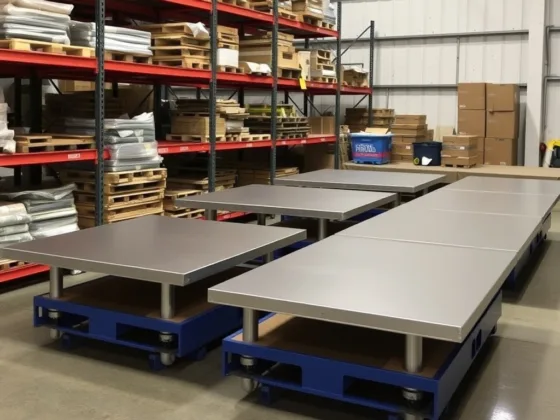Table of Contents Show
An important part of owning heavy equipment machinery is the maintenance that goes into it. These machines are not cheap, so investing in one and keeping it well maintained is a great way to ensure your return on investment is worth it.
Here is your heavy equipment maintenance guide.

1. Check Major Malfunction Areas Often
Often, the first place that heavy machinery fails is in the places that you expect them to. This can mean the battery, the belt, exhaust, or even lubrication.
Go through a checklist of common failures from reviews and forums to see what other people that own your equipment say. If there is a common problem between posts, be sure to make that area a priority.
Moreover, it doesn’t hurt to be meticulous with your heavy equipment. Aside from checking large sections of your equipment, don’t forget to inspect each part or component from time to time. As the heavy equipment goes through wear and tear, there are specific components that will need replacement earlier than others.
For instance, the bucket teeth in excavators are components that regularly go through heavy use, as it’s responsible for digging and picking up all types of materials.
Since they’re frequently in contact with construction materials and debris, you should inspect them regularly and prepare bucket teeth replacement ahead of time. Also, make sure you’re getting high-quality excavator bucket teeth and adaptors from Esco bucket teeth Perth or similar reliable manufacturers.
2. Listen to the Maintenance Manuals
Factories design these machinery maintenance manuals for a reason. They have put the machine through every test and turn to try and break the machine. That way they can tell you the limits that they feel safe with the machine.
They can also dictate when you should get your machine professionally maintenance. Whether this is new treads or a complete overhaul. A maintenance guide leads your machine to last as long as possible.
When you wing it and think you know better, you can quickly lead to a broken piece of equipment. If you’re using heavy equipment for the first time, don’t forget to keep the manuals after unboxing the equipment so you can refer to them for help in the future.
Read Also:
3. Preventative Maintenance Outperforms Needed Maintenance Every Time
Preventative maintenance is the best way to ensure that your heavy machine never goes out on you. This means if you know it is time to fuel up, don’t run the gas tank to empty as much as possible.
If you know that your battery is more than a few years old and is in constant heavy terrible conditions, change it on time. You don’t want to be in the middle of a site when your machine fails and you have no way to move it.
If your machine is in need of a new undercarriage, be sure to check out Mitsubishi Undercarriage.
By observing preventative maintenance, you take a proactive approach instead of a reactive one. To practice it effectively, follow your equipment’s guides and manuals and promote consistency with your team of operators and mechanics so that everyone will put in the effort to evaluate the equipment before and after every use.
For a preventative maintenance program to work, the following maintenance practices should be included in your program:
- Component lubrication
- Oil and filter changes
- Fluid analysis
- Visual inspections from the ground up
- Engine analysis
- Cab compartment inspection
4. Keep Everyone Who Uses the Machine in the Know
A common mistake with machinery maintenance is not letting everyone who runs the machine in on what happened.
Even if everything is known to run smoothly, by letting everyone know, you’re ensuring that they can adjust from their normal usage of the machine.
If something breaks while another employee is using it and they weren’t aware of the maintenance, they could be fighting tooth and nail to figure out what happened.
When they’re in the know, they can just double check to make sure maintenance was done correctly.
Heavy Equipment Requires Dirty Hands
When it comes to owning heavy equipment, it requires you to get your hands dirty, even on the off days. The pieces of equipment are a piece of art and should be treated as such.
These beautiful pieces of machinery will also break down eventually. Aside from maintaining them, you should invest in spare Ford Holland parts just in case the machinery gets damaged. By making this investment, you will, at the very least, be ready for any eventuality and be able to operate and maintain your heavy equipment for many more years.
As heavy equipment prices are on the rise today, or the machine might skip out on work.
Enjoy the article? Be sure to check out our other blogs. If you know someone that owns heavy machinery, be sure to share this article with them.










